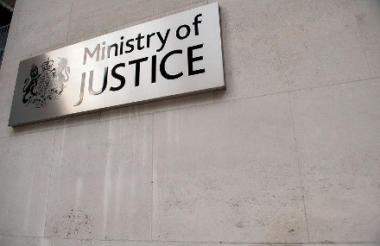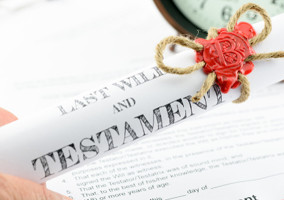A recent government decision to change the fee structure for probate will cost the charity sector an additional £18m a year, according to estimates released today by the Institute of Legacy Management.
The government recently changed the fee structure for estates going to probate, so that larger estates pay more.
Around 38,000 estates with a charitable legacy went to probate last year. The average value of such an estate is £425,000, and current probate fees are £215.
Changes announced recently by the Ministry of Justice, which will take effect in May this year, mean that charities will now pay £1,000 on estates worth more than £300,000, and £4,000 on those worth more than £500,000. Larger estates pay up to £20,000.
ILM – the membership body for legacy professionals – has estimated that based on these figures charities will pay an additional £18m a year – around 7 per cent of all money raised. This is a 400 per cent increase on what is currently paid.
However it said this was a conservative estimate, and the actual figure could be much higher.
Probate changes been condemned in Parliament by Conservative backbench MPs Jacob Rees-Mogg and Oliver Colvile as a “stealth tax” and a “death tax”. The move is expected to raise around £250m a year altogether.
Residual legacies worst hit
The change is likely to hit residual legacies particularly badly.
In many cases the main bulk of the estate goes to family, and a residual amount goes to charity – an average of just over £58,000, according to the most recent figures from monitoring body Legacy Foresight.
It appears likely that if probate fees are charged on an estate, they will end up being deducted directly from the residual amount, and so charities will end up paying the whole fee.
Infrastructure bodies to campaign
“We’ve made a conservative estimate of the cost to charities,” Chris Millward, chief executive of the ILM, said today. “The actual cost could be much higher.
“We are fairly disappointed that the government has ignored the wishes of 80 per cent of the respondents to its consultation, and gone ahead with these plans anyway. Probate fees are a charge for a service, and these increases seem quite disproportionate. We will be making further representations to the Ministry of Justice.”
He said that government had introduced tax incentives designed to encourage more legacy giving to charities, but was now introducing measures which would have the opposite effect.
In Fundraising Magazine
Other bodies have also called for the government to rethink its approach to probate fees. Remember a Charity, the body to encourage legacy giving, the Institute of Fundraising and the Charity Finance Group have all called for a rethink.
Andrew O’Brien, head of policy and engagement at CFG, said: “Legacies are a growing and important way that the public supports good causes. It is critical that we make giving as easy and effective as possible.
“So it is important that the government does not undermine existing incentives through increasing probate fees on estates that leave money to charity which could have significant unintended consequences.”
Ministry of Justice: this system is fairer
A Ministry of Justice spokeswoman said: “We are introducing a fairer banded system of probate fees which will mean more than half of estates will pay nothing.
“Those who leave fixed sum donations to charity will not be affected, fees will only affect those who choose to donate a defined percentage of their estate.
“Fees are necessary to maintain an accessible, world-leading justice system which puts the needs of victims and vulnerable people first.”
Related articles












